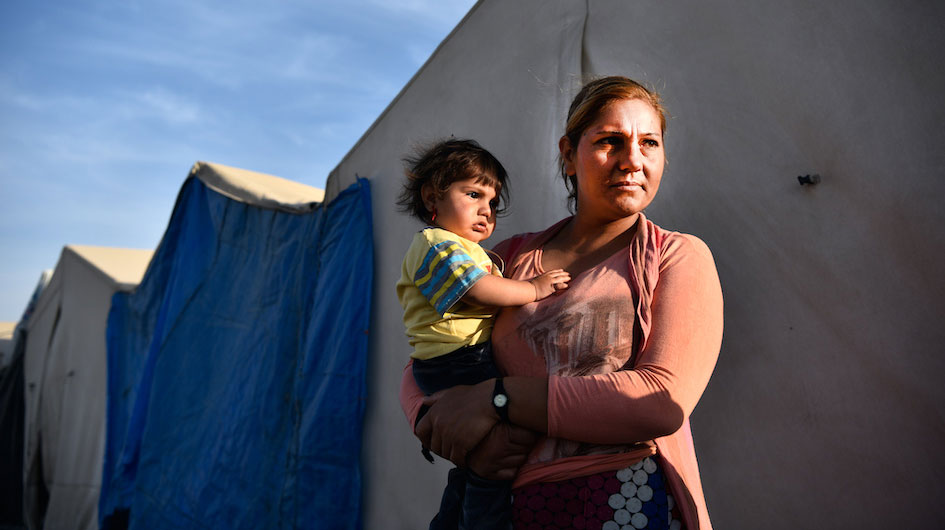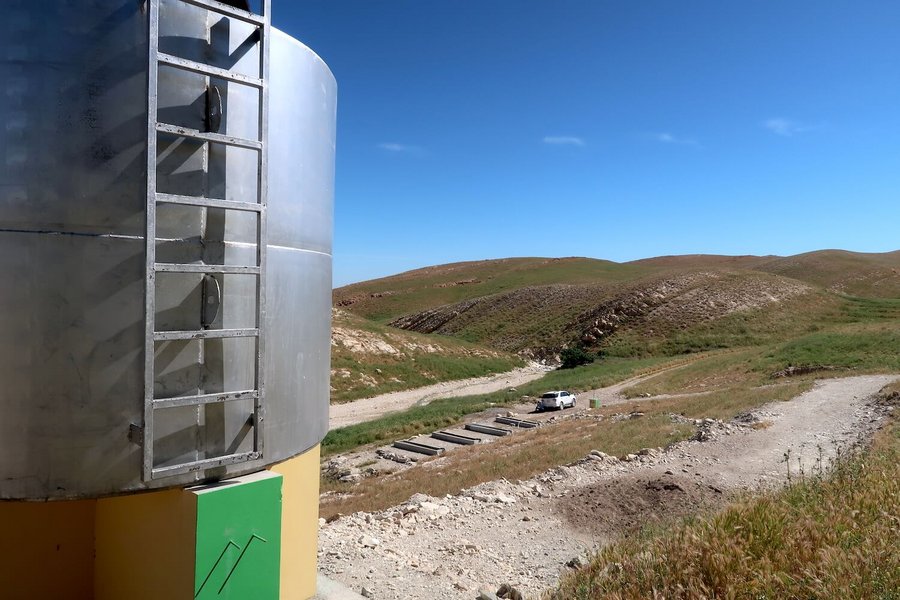
The pace and scale of the displacement have made the Iraq crisis one of the largest and most volatile in the world. Across the country, many people have been forced to flee their homes and leave their livelihoods behind. The armed conflict and years of continuous military operations have left large parts of the population in a constant state of fear and anxiety. In close collaboration with international and local partners and authorities, Welthungerhilfe empowers people to break out of hunger and poverty, with measurable impact, and with integrity and accountability.
Helping the returned – Welthungerhilfe in Iraq today
During the rule of ISIL and long years of protracted conflict, vital infrastructure was destroyed. For millions of people, access to basic services and basic supplies remains limited. With the end of the armed conflict in 2018, Iraq began its transition into a post-conflict state. Many Iraqis began to return without knowing if they had a home to return to. Welthungerhilfe responded to this situation with the establishment of a regional office in the Turkish city Gaziantep and a representation office in Erbil/KRI (later in Dohuk) supervised by the regional office in 2014. Since operations in KRI widened, in November 2016 the decision was made to change the representation into an independent country office based in Erbil. The Welthungerhilfe team now consists of around 120 staff members on the ground. Since 2014, Welthungerhilfe has been directly supporting more than 250,000 people through our project activities in Sinjar, Tel Afar, Tel Kaif, Mosul and Al-Hamdaniya districts of Ninewa Governorate.
From emergency assistance to long-term impact
In recent years, Welthungerhilfe has been shifting its work on the ground from initial emergency assistance in 2014 to more sustainable and long-term programming focused on reconstruction, stabilisation and resilience, especially in areas with high numbers of returnees such as the Ninewa Governorate. This allows us to support people and communities affected by conflict to rebuild their lives. Our multisectoral programme combines humanitarian aid; water, sanitation and hygiene; sustainable agriculture; and economic development projects to achieve our goal of fighting hunger and poverty.

Violence and war forced millions of people to leave their homes
In the spring of 2014 alone, violence and war in Iraq triggered a wave of internally displaced persons from the Anbar governorate and an enormous number of Iraqi refugees in neighbouring countries – within months, 2.5 million Yazidis, Kurds, Turkmen, Christians and Shiite Arabs were displaced within the country. The years of armed conflict between 2015 and July 2017, including the nine-month battle to retake Mosul, the longest urban battle since World War II, led to a further wave of displacement of 3.4 million civilians. Population movements have been multi-directional; while hundreds of thousands of people have fled their homes, hundreds of thousands have also returned to the retaken areas. During these years, civilians have been at extreme risk, from aerial bombardment, artillery barrage, crossfire, snipers, and unexploded ordnance.
The need for humanitarian aid remains
Even today, millions of people throughout Iraq are suffering the consequences of armed conflict. Tens of thousands of people have been killed or injured. Almost every family affected by the war has lost at least one family member. 6.7 million people in Iraq are still dependent on humanitarian aid and 1.5 million remain displaced in their own country.